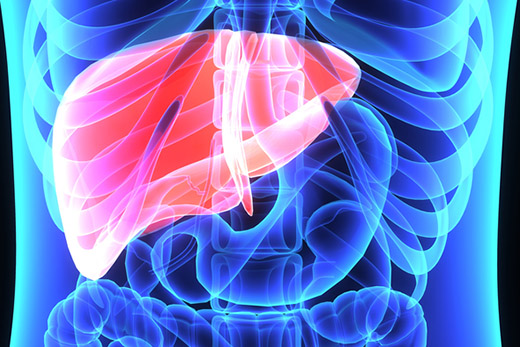The Emory Transplant Center has performed its first liver transplant from an HIV-positive deceased donor to an HIV-positive recipient, thanks to the implementation of the HIV Organ Policy Equity (HOPE) Act. The successful procedure is also the first HIV-positive to HIV-positive liver transplant in the state of Georgia and one of the first in the Southeast. This comes one year after Emory transplanted its first HIV-positive donor kidney into an HIV-positive recipient.
Organ donation between HIV-positive individuals was banned until the HOPE Act was signed by President Obama in November 2013. The HOPE Act became effective in November 2015, authorizing clinical trials of the use of organs from HIV-positive donors into HIV-positive transplant recipients.
Through the HOPE Act, Emory and 21 other transplant centers nationwide are taking part in the HOPE in Action clinical trial -- a prospective, pilot study to evaluate the safety of HIV-positive deceased donor solid organ transplants (kidney and liver) in HIV-positive recipients. Importantly, these organs are never transplanted into HIV-negative recipients. Any complications that may arise in recipients after transplant are also studied.
To date, 46 transplants from HIV-positive donors have been performed in HIV-positive recipients (30 kidneys and 16 livers) at six of the transplant centers involved in the clinical trial.
“More than 7,000 Americans die annually while waiting for an organ transplant, highlighting the critical need to expand the donor organ supply,” says William Kitchens, MD, PhD, assistant professor of surgery in the Division of Transplantation at Emory and a liver transplant surgeon. “The HOPE Act makes an important contribution to solving this medical crisis, as previously these organs from HIV-positive donors were discarded, despite the fact that they were often well-functioning and capable of saving lives. Across the nation, more than 200 HIV-positive recipients are now enrolled in the HOPE Act trial to potentially receive HIV-positive donor organs, and we expect this number to continue to grow.”
Stable HIV-infected adults with end-stage kidney or liver disease who meet study-specific HIV criteria for organ transplantation will be offered enrollment in the study at Emory. Study participants will be followed and evaluated for four years after their transplant.
“Because of improved anti-retroviral regimens and other advances in their care, patients with HIV are living much longer and are known to have excellent outcomes after organ transplantation,” says Kitchens. “By utilizing organs from HIV-positive donors that were previously discarded, the HOPE Act significantly shortens the wait time for HIV-positive patients in need of an organ transplant.”
Kitchens goes on to say, “We commend the bravery of our recipient who participated in this trial and also extend our deepest gratitude to the donor and the donor’s family for providing this gift of life. We also thank LifeLink of Georgia for their help in making this transplant a reality. Every day we encounter patients in desperate need of life-saving organ transplants, and we encourage everyone -- both those living with HIV and those who are not -- to register as an organ donor, as a critical need remains.”
According to the Organ Procurement and Transplantation Network, nearly 115,000 people are on waitlists for lifesaving organ transplants. Almost 14,000 are waiting for new livers. To find out more about the process of organ donation, visit Donate Life Georgia.

